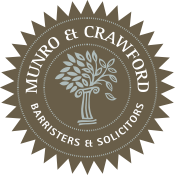
Estate planning isn’t just about deciding who gets what, it’s about preserving your wealth, minimizing taxes, and ensuring your wishes are honoured. There are several tax obligations that can affect your estate before assets are passed on to your loved ones. Understanding these obligations, and how to reduce them, is key to protecting your legacy.
Below are top strategies Canadians can use to reduce or avoid estate taxes, especially in provinces like British Columbia where probate fees can impact high-value estates.
1. Understand the Taxes That Apply in Canada
In Canada, there is no inheritance tax paid by beneficiaries. However, the estate itself is subject to various taxes before distribution:
- Deemed disposition taxes: Upon death, most assets are treated as if they were sold at fair market value. This can trigger capital gains tax, with 50% of the gains included as taxable income.
- RRSPs and RRIFs: These are taxed as income in the year of death unless rolled over to a qualified beneficiary.
- Probate (Estate Administration) fees: In BC, probate is required for most estates and involves a fee of:
- $0 for estates under $25,000
- $208 + 0.6% of estate value between $25,000 and $50,000
- $358 + 1.4% of estate value over $50,000
These taxes and fees can significantly reduce what’s passed on to your heirs, but many of them can be reduced or avoided with proper planning.
2. Use Joint Ownership Strategically
One common method to avoid probate is to hold certain assets in joint tenancy with right of survivorship. Upon death, the asset transfers directly to the surviving owner and does not pass through the estate.
This can be used for:
- Bank accounts
- Real estate
- Vehicles
Caution: Joint ownership can have legal and tax implications. It may expose assets to the other person’s creditors or affect tax liability, especially if not structured properly. Seek legal advice before adding someone as a joint owner.
3. Designate Beneficiaries on Registered Accounts
By naming a direct beneficiary on accounts like RRSPs, RRIFs, and TFSAs, these assets bypass probate and go directly to the named individual. This keeps them out of the will and reduces the estate’s value, lowering probate fees.
Tip: Spouses and financially dependent children may be eligible for a rollover of RRSPs/RRIFs, deferring or eliminating tax at death.
4. Gift Assets During Your Lifetime
Canada has no gift tax, which means you can give away assets while you’re alive without immediate tax consequences. This reduces the value of your estate and avoids probate on those assets.
However, if you gift assets like real estate or stocks, it triggers a deemed disposition, and you may be liable for capital gains tax at the time of the gift. So timing and asset choice matter.
Gifting is most effective when:
- Assets have little or no gain
- You want to see your beneficiaries enjoy them while you’re alive
- You combine gifting with other estate planning tools
5. Set Up a Trust
Trusts allow you to transfer control of certain assets while still directing how and when they’re used. They can also:
- Reduce probate fees
- Provide privacy (trust assets are not public)
- Offer protection from creditors
- Help with complex family arrangements
Common options include:
- Inter vivos trust: Set up during your lifetime
- Testamentary trust: Created in your will (taxed differently since 2016 rule changes)
Trusts require careful setup and ongoing management, so speak to a lawyer or tax advisor before proceeding.
6. Use the Principal Residence Exemption
The principal residence exemption allows Canadians to avoid capital gains tax on the sale or deemed disposition of their primary home. If your home qualifies, it can pass tax-free to your heirs, a major benefit for high-value properties in BC.
Ensure your records are clear, and speak with an advisor if your property has mixed-use (e.g., rental or business).
7. Plan for Business Succession
If you own a business, proper succession planning can reduce or defer taxes significantly. Options include:
- Freezing the value of your shares and issuing growth shares to your heirs
- Using a holding company or family trust to structure ownership
- Taking advantage of the Lifetime Capital Gains Exemption (LCGE) for qualified small business shares (up to $1,016,836 as of 2024)
This area is complex, and legal/tax advice is essential to avoid unexpected liabilities.
8. Prepay or Plan for Final Expenses
Setting aside funds or prepaying funeral and final costs can help your estate avoid last-minute cash withdrawals or asset sales. This also reduces the value of the estate and may lower probate fees.
Some people set up segregated funds (via insurance) with named beneficiaries, these also bypass probate.
9. Consider Life Insurance
Life insurance can be used to:
- Cover final tax liabilities (e.g., on RRSPs or capital gains)
- Provide tax-free money to beneficiaries
- Keep other estate assets intact
Proceeds pass outside the estate when a beneficiary is named and are generally not taxable.
10. Work With an Estate Planning Lawyer
Avoiding unnecessary estate taxes isn’t about evading the law, it’s about understanding it. Every family’s situation is unique, and BC-specific regulations can be complex.
A qualified estate planning lawyer can:
- Help structure your estate for tax efficiency
- Draft documents like wills, powers of attorney, and trusts
- Navigate probate and help your executor avoid delays
At Munro & Crawford, we help families across BC protect their legacy through smart, compliant planning.
Planning Ahead Makes a Difference
Even without an inheritance tax, Canada’s estate-related taxes and fees can still reduce what your beneficiaries receive. Thoughtful estate planning helps minimize those costs, simplifies the process for your loved ones, and ensures your legacy is handled the way you intend.
If you’re unsure where to begin or want to review your current plan, speaking with an experienced estate planning lawyer can give you clarity and confidence






